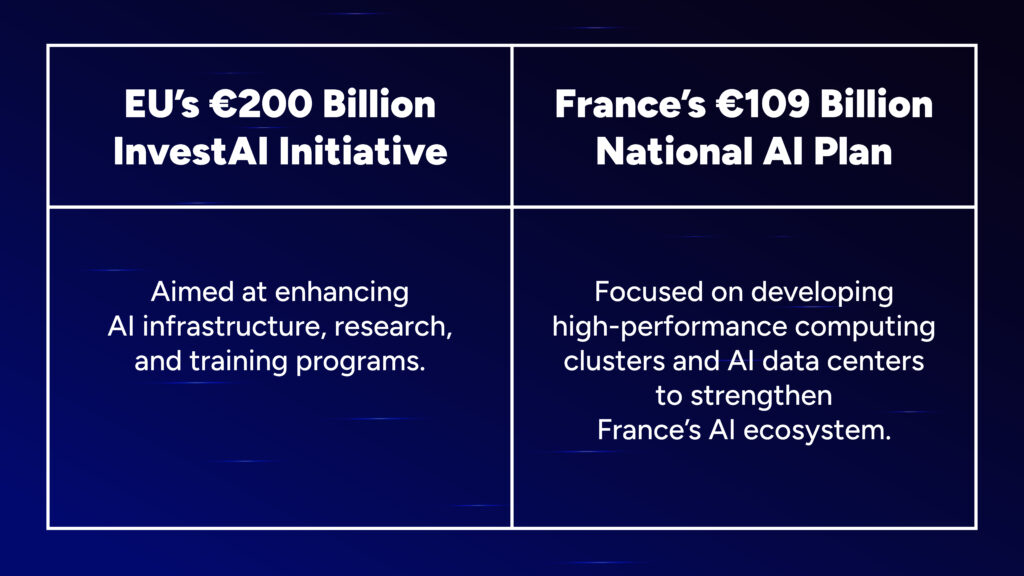The AI Action Summit 2025, held in Paris on February 10-11, brought together world leaders, tech giants, and policymakers to shape the future of artificial intelligence. However, instead of a unified vision, the event highlighted a growing divide in AI governance, massive funding announcements, and geopolitical tensions influencing the AI landscape.
Diverging AI Governance Approaches
United States: Minimal Regulation Approach
U.S. Vice President JD Vance warns against overregulation. Advocates for a light-touch approach to AI governance.Criticizes Europe’s strict AI policies.Cautions against AI collaboration with authoritarian regimes.
Europe: A Balanced Regulatory Framework
European Commission President Ursula von der Leyen supports AI regulation. French President Emmanuel Macron emphasizes public trust. Seeks balance between innovation and safety.
China: A Push for Global AI Cooperation
Chinese Vice Premier Zhang Guoqing emphasizes ethical AI. Supports international collaboration on AI. Advocates for a global regulatory framework.
India: AI for All
Indian Prime Minister Narendra Modi supports inclusive AI policies. Focus on accessibility and affordability of AI. Aims to enable all nations to benefit from AI advancements.
Billions Flowing into AI Development
The summit witnessed major funding announcements aimed at accelerating AI infrastructure and innovation:

The AI Governance Divide: A Deepening Rift
U.S. & U.K. Skip AI Safety Declaration
While over 60 nations signed a declaration promoting “safe, secure, and trustworthy AI,” the United States and the United Kingdom abstained, citing concerns about excessive regulation hindering progress.
India & China Support AI Safety Measures
Unlike the U.S. and U.K., both India and China endorsed the global AI safety declaration, signaling their commitment to ethical AI development.
The Future of AI: Innovation vs. Regulation
The AI Action Summit 2025 revealed a stark contrast between nations prioritizing rapid innovation and those advocating for stricter oversight. With geopolitical tensions, unprecedented investments, and shifting policies, the coming years will be critical in defining global AI governance.
Breaking News: India to Host the Next AI Action Summit!
In a significant development, India has been selected as the host for the next AI Action Summit, further cementing its position as a rising AI powerhouse. As AI governance and innovation continue to evolve, all eyes will be on India’s leadership in shaping the future of AI.


